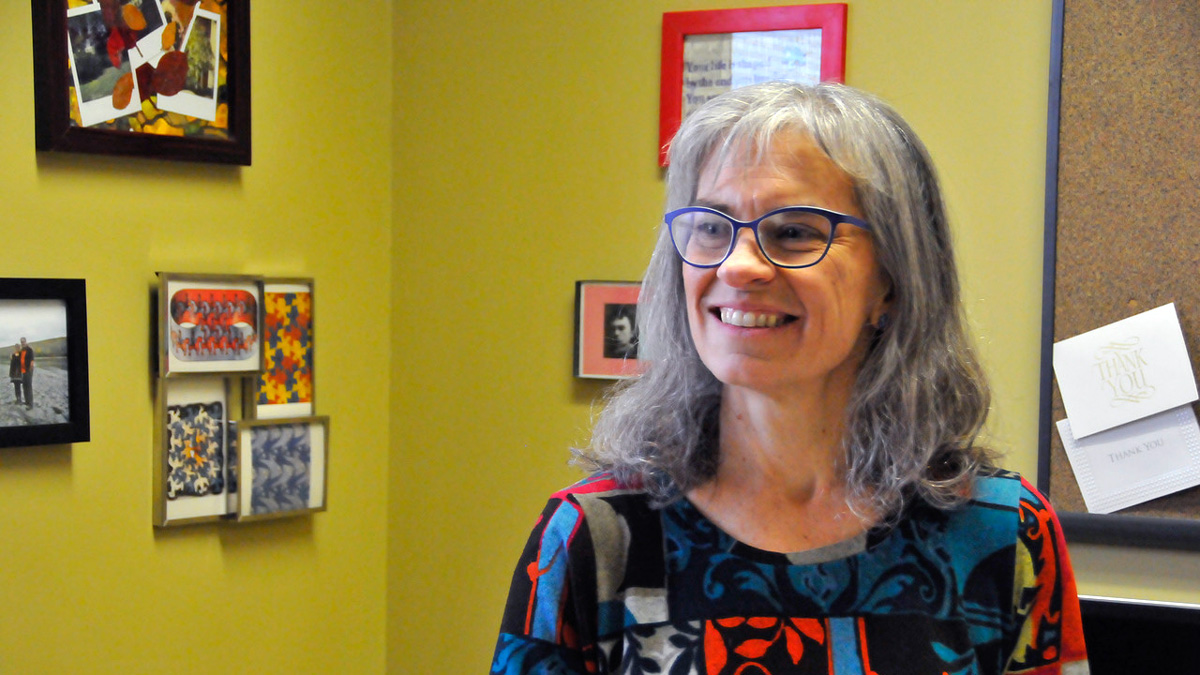 Heléna Plain
Heléna PlainA recent American study found female professors are treated differently by their students compared to their male counterparts.
The study was published earlier this month and was based on data collected from a survey of 88 professors and 121 college students in the U.S.. Analysis of the data shows female professors receive more requests to go beyond their standard work duties, including students asking to retake a test, get an extension, or even a flat grade boost, more often than male professors. The study suggested this was because women are expected to be more empathetic and to fill a more nurturing role.
University of Alberta sociology professor Amy Kaler said she agrees with this reasoning.
“In my experience students are more likely to regard female professors with an expectation that we will be really nice people,” she said. “Or that we will be like their mom because we’re female or perceive us as feminine. I don’t think this is an expectation that they have of male professors.”
Kaler said the world is saturated with images of what a knowledgeable or authoritative person looks like: typically “older, white, cisgender, heterosexual males,” and when a professor fails to match that image, students feel they can ask them for more or even question their credibility.
“I have women who are colleagues who teach STEM (Science, Technology, Engineering, and Mathematics) courses who say they get a lot more questioning along the lines of, ‘Do you really know what you’re talking about?’ They have to go further in demonstrating that ‘Yes, I really do have a PhD or MSc’ or whatever it is,” she said. “They tell me that they find their authority and competence of the subject area being pushed back by students more than their male colleagues.”
The impact on professors from these extra requests can manifest itself in two main ways. The first is the direct effect of more time spent dealing with student problems resulting in an emotional toll on the professor. Second, some professors’ jobs are influenced by the USRI’s for their courses, and refusing students’ special requests can hurt the results of those USRI’s. This effect is compounded for female professors who, as studies have shown, already receive worse student evaluations than their white male colleagues, Kaler said.
The study noted that this is almost never a conscious bias for students. Kaler suggests that self-reflection is perhaps the best way to overcome this bias, conscious or not.
“I heard some students talking about a female instructor the other day that they both had,” she said. “They both liked her and said she was the sweetest, nicest person, that she’ll go out of her way to help you, and I’m thinking if that was a male instructor that they really liked, would it be, ‘He’s really sweet, he’s really nice, he’ll help you with everything,’ or would it be, ‘He really knows that he’s talking about, he brings in a ton of examples, it’s really interesting to listen to him?’ I think students can pay attention to the language we use when we talk about our instructors, whether it’s in a positive way for people we really like or in a less positive way.”
In any case, Kaler recommends that if students do need to ask their professor to go beyond their standard work duties for them, they should do better than one memorable student she has heard of who missed their schedule time for an oral exam and when contacted by the examiners not only did not apologize, but asked them to wait longer as they had just “put a baked potato into the microwave and it was going to take fifteen minutes to bake, and that they would come after that.”




